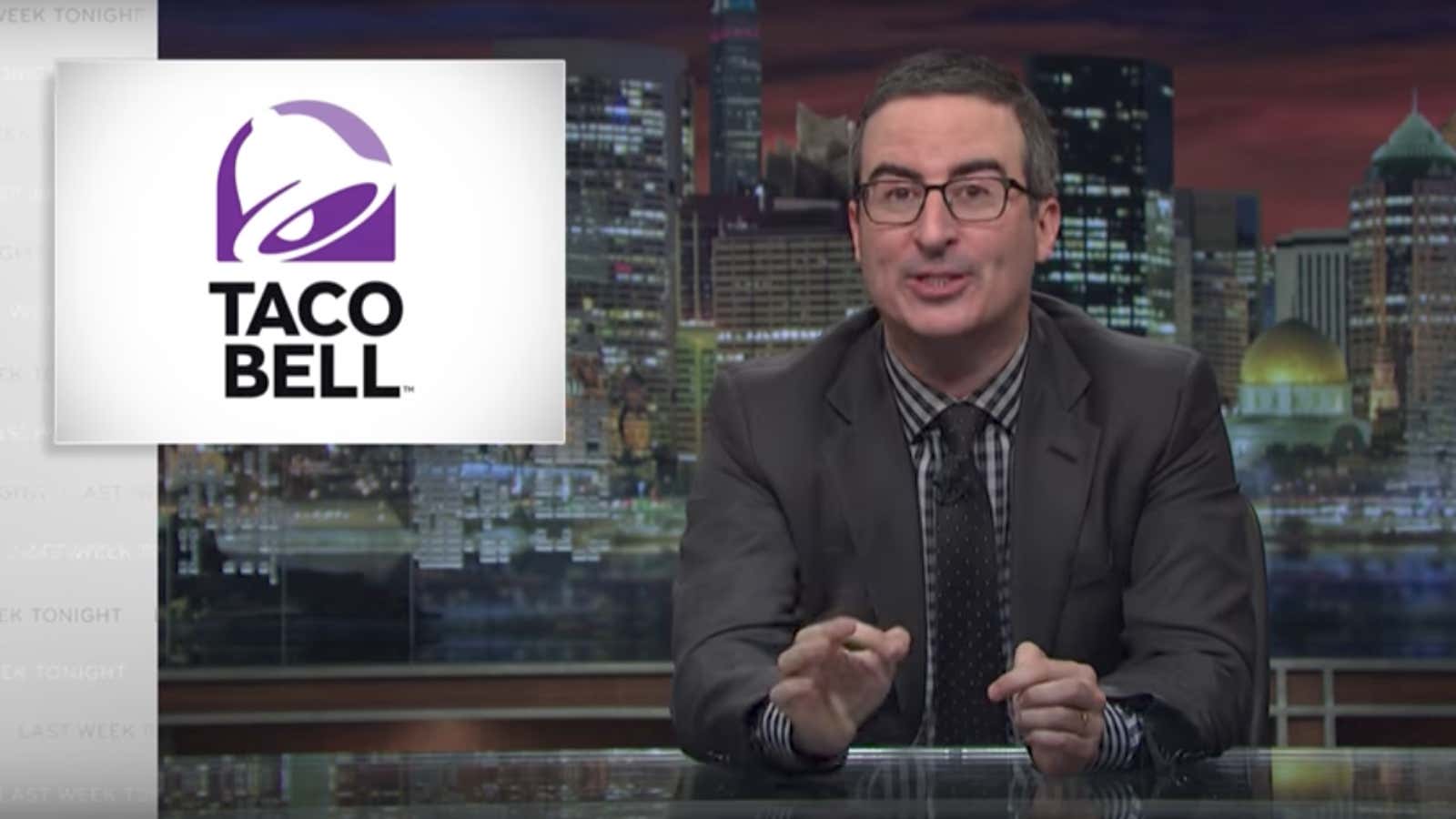For all the problems with US healthcare, there’s one service that’s been fully funded by the government since 1972.
During his troubled tenure as president, Richard Nixon signed a bill into law that provided access to dialysis—a process which externally filters the blood when kidneys fail to do so—to anyone who needs it. As of 2016, there were about 468,000 patients in need of this service, which takes about 12 hours over the course of three days per week.
But, as John Oliver pointed out on the May 14 episode of “Last Week Tonight,” this law led to the inevitable creation of for-profit dialysis businesses, which highlights almost everything wrong with the US healthcare system in general.
As Oliver explains, kidney dialysis occurs in centers outside of hospitals, and roughly 70% of these are run by two private, for-profit companies: DaVita and Fresenius. These companies have fairly loose laws about quality control measures. For example, only one nurse and no doctors need to be present at a center at any given time.
Leniency isn’t great for healthcare. In one Department of Health and Human Services quality report of a DaVita center from 2014, inspectors found “the clinical staff failed to follow standard infection control practices” which “placed all patients, staff, and visitors at risk of harm and possible death.”
But safety concerns aside, actually being on dialysis isn’t great for you anyway.
Patients have a 25% chance of death after being on dialysis for one year; their chance of death increases to 65% after five years. Although dialysis extends patients’ lives, it comes with a large swath of side effects that range from anemia and muscle cramps to bone diseases. It’s much better, therefore, to get a kidney transplant, if possible.
Companies like DaVita and Fresenius legally have to tell patients that getting themselves on the kidney transplants list is another option, but they’ve built entire business models on keeping as many patients coming through as possible. They don’t do a lot to advertise this other option, and instead —like any self-respecting business—do all they can to maximize their own profits. In 2009, the CEO of DaVita, Kent Thiry, told University of California, Los Angeles business students that “if [he] had 1,400 Taco Bells and 32,000 people who worked in them [he] would be doing all the same stuff.”
That “same stuff” includes wasting drugs to charge Medicare and Medicaid more money and forcing patients through quickly, possibly skimping on their treatment. Since 2011, there have been at least three lawsuits against DaVita, which the company has settled for almost $1 billion. Fresenius, its main competitor, also settled a similar lawsuit for $250 million in 2016. Both companies deny the claims against them.
Quartz reached out to both companies for comment in response to Oliver’s comedy bit.
These vital, for-profit healthcare providers probably aren’t going to clean up their acts any time soon, Oliver argues. Without regulatory incentives, why would they? The best thing we can do for now, he says, is take the fairly easy steps to become organ donors (which is relatively easy), or to donate one of your own kidneys if you’re feeling overwhelmingly generous.
